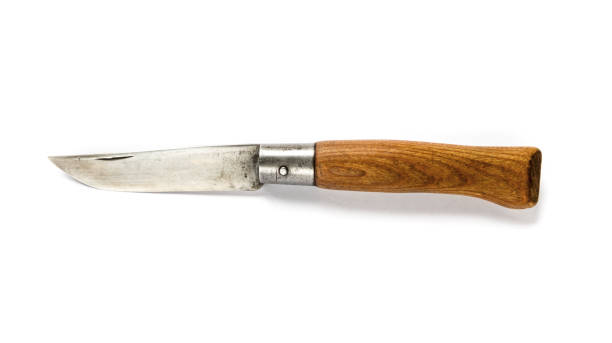The best Damascus steel for knives

It is no coincidence that when choosing knives, experienced chefs first of all pay attention to the steel from which the blade is made. Since different types of cutting tools have different functions and operating conditions, the best knife steel should match them as closely as possible. In this article, we consider, together with the experts Damascus1, how kitchen knives, steel, and their characteristics are connected.
Kitchen knives – steel is everything
The cutting properties of a knife blade, the ease of sharpening, the stability of the cutting edge, and the ability to add flavor to food are mainly dependent on the chemical composition of the steel and the steelmaking technology. They are also affected by heat treatment, and steel hardening, but in the second place. Steel is an alloy based on iron and carbon, as well as various alloying additives and impurities.
Regional natural factors endow iron ore-bearing geological deposits with a special composition, and highly skilled steelmakers use them in various functional areas. Throughout the time of deep thousand-year history, people have been learning to extract and process this vital material, removing excess impurities of silicon, manganese, and sulfur from steel, and adding the necessary alloying components: chromium, vanadium, molybdenum, tungsten, and others. First, the ore is smelted into iron,
All steel compositions are divided according to their purpose:
Construction, which without additional heat treatment is used for the production of rolled metal; Machine-building, with a share of carbon up to 0.75% and manganese up to 1.1% – for the design of machine parts; Tool, also carbon, but with a lower manganese content of 0.4%, is used for the production of cutting tools;
Special – steels with special properties, such as corrosion resistance, heat resistance, acid resistance, etc. For the manufacture of knives, only tool steel grades are used, which in different countries have received different names, according to current standards:
The carbon content in steel determines its main mechanical properties: hardness, strength, and wear resistance. Increasing the carbon content in the composition of the steel increases the hardness, but reduces the corrosion resistance.
Alloying steel with chromium makes it corrosion-resistant and increases its density. Manganese in the composition of steel increases its toughness, hardenability, and wear resistance. The addition of molybdenum makes the steel more ductile and hardenable during forging, and also increases strength. Vanadium increases the toughness and density of steel, and also increases wear resistance.
The best knife steel for chef’s blades
The best knife steel for chef’s blades has a balanced composition that allows you to manually sharpen the cutting edge, maintain high cutting power for a long time and, at the same time, do not transfer the taste of metal to food.
Modern high-tech production of kitchen knives, based on centuries-old traditions of metalworking and the highest quality standards, such as Damascus brands, Fuji Cutlery, and Tadafusa, have gone further and began to combine steels of the most suitable grades in a multi-layer blade design, due to which a combination of high cutting edge strength is achieved.
Ease of sharpening and resistance to corrosion. Steel VG10, AUS8, SLD manufactured by Takefu, Hitachi Metals, and Aichi Steel, alloyed with molybdenum and vanadium, have become widespread in the production of kitchen blades of the Far Eastern type and are considered all over the world as good steel for a knife. R2 powder steel from the Damascus manufacturer Kobelco Steel Ltd deserves special attention.
The chemical composition
The chemical composition of this steel is kept secret and not disclosed. R2 outperforms similar brands in cutting edge strength (Rockwell hardness 62 to 64), sharpness, and corrosion resistance, so it frankly claims to be the best Damascus steel for expensive kitchen knives. Professional Damascus Steel knives, according to medieval traditions, are still made of AoGami alloy steel or ShiroGami carbon steel. R2 powder steel from the Damascus manufacturer Kobelco Steel Ltd deserves special attention.
Damascus steel for expensive
The chemical composition of this steel is kept secret and not disclosed. R2 outperforms similar brands in cutting edge strength (Rockwell hardness 62 to 64), sharpness, and corrosion resistance, so it frankly claims to be the best Damascus steel for expensive kitchen knives.
Professional Damascus kitchen knives, according to medieval traditions, are still made of AoGami alloy steel or ShiroGami carbon steel. R2 powder steel from the Damascus manufacturer Kobelco Steel Ltd deserves special attention.
Read other: GIFT GUIDE: COOKING BOSS GIFT
The chemical composition of this steel is kept secret and not disclosed. R2 outperforms similar brands in cutting edge strength (Rockwell hardness 62 to 64), sharpness, and corrosion resistance. So it frankly claims to be the best Damascus steel for expensive kitchen knives. Damascus kitchen knives, according to medieval traditions, are still made of AoGami alloy steel or ShiroGami carbon steel. therefore, she frankly claims to be the best Damascus steel for expensive kitchen knives. Professional Damascus kitchen knives, according to medieval traditions, are still made of AoGami alloy steel or ShiroGami carbon steel. therefore, she frankly claims to be the best Damascus steel for expensive kitchen knives. Professional Damascus kitchen knives, according to medieval traditions, are still made of AoGami alloy steel or ShiroGami carbon steel.
Damascus brands of knife steel
Damascus brands of knife steel compete with European ones. M390 is a premium high-strength steel grade developed by the metallurgical concern Bohler. Kitchen knives are rarely made from them because they are expensive and more difficult to sharpen.
But a few models of European kitchen knives made of such steel have received the highest reviews. The hardness of the blade according to Rockwell is 65 units; the ultimate strength is 900 MPa; withstands heat up to 800°C; highest corrosion and chemical resistance. The choice of steel for a knife in the kitchen reflects the professionalism and qualifications of the cook. Before purchasing any knife, we recommend that you specify in advance the steel grade of the blade and its features.
If you like our article, you can definitely tell us by commenting in the comment box and sharing this article with as many others as possible.
Read More: How To Use A Stiletto Knife





